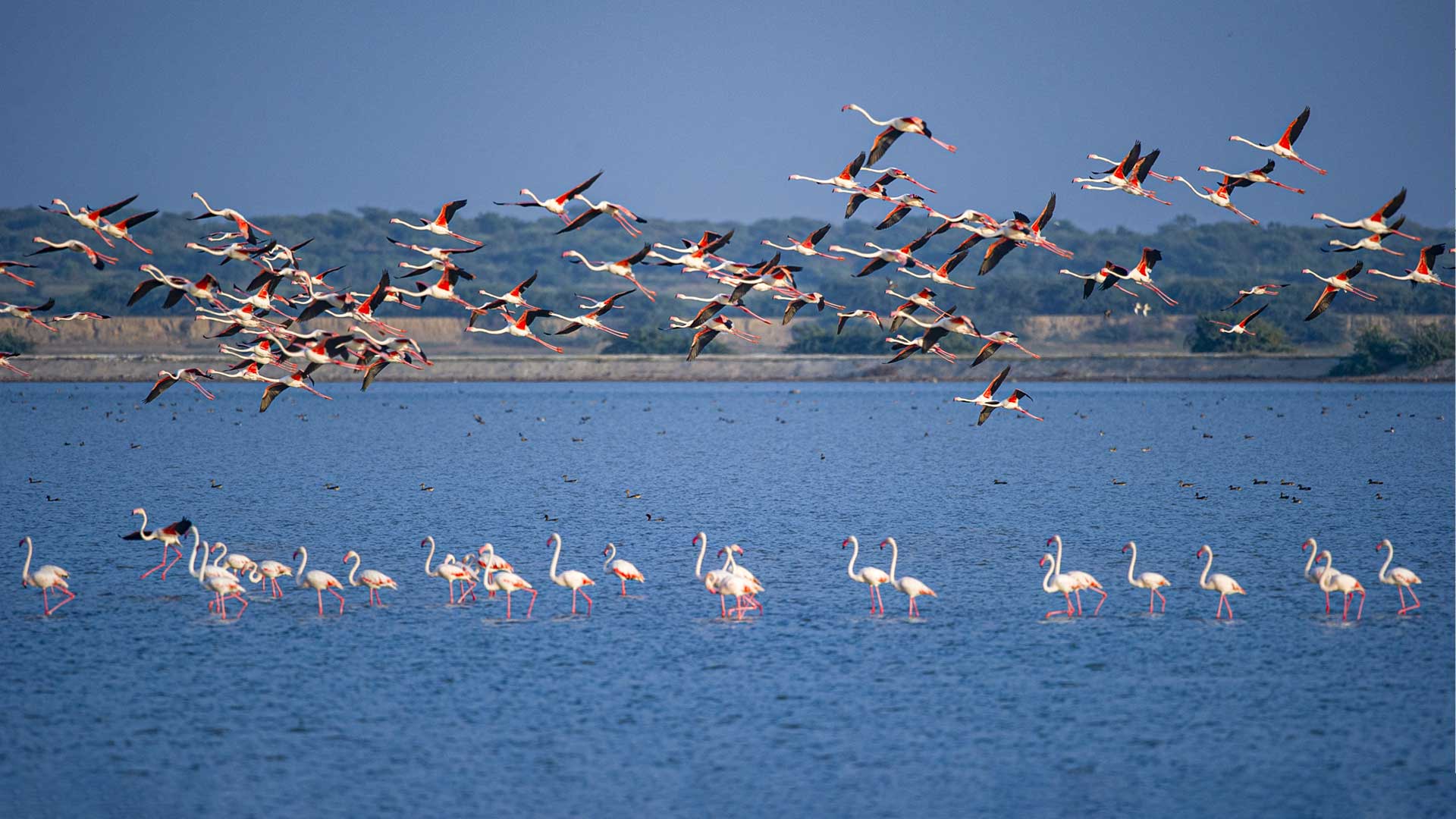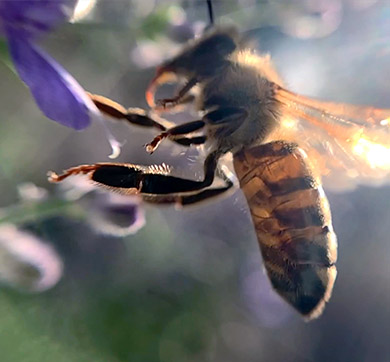December 2022 | 1982 words | 7-minute read
Come Autumn and it’s homecoming for the world's largest Tern, the Caspian Tern of the Laridae family, at the Charakla Saltworks of Tata Chemicals in Gujarat — its only active nesting site in the country.
About a 1,000 km away, in the neighbouring state of Maharashtra, Tata Motors transformed a barren area at its Pimpri plant into a 245-acre wetland — a haven for birds today.
The Tata Coffee plantations in the Western Ghats, the world’s eighth hottest hotspot of biological diversity, are providing a safe habitat to the endangered Great Hornbill and the endemic Malabar Grey Hornbill.
Tata Steel’s Noamundi Iron Mine in Jharkhand has become a preferred nesting place for several avian species; and the deteriorating urban avifauna has found a home across 16 TCS campuses in India, which support over 70 bird species.
Birds are nature’s sentinels, carrying out essential functions of pollinating plants, dispersing seeds, scavenging organic waste, engineering the ecosystems and controlling insects, which are harmful for agriculture. Being the most widely monitored taxonomic group, a decline in the avian population across the world is an alarming indicator of the overall depleting health of our ecosystems, environment and planet. “One in eight bird species is threatened with extinction,” says the State of the World’s Birds 2022 report by BirdLife International. Furthermore, many key sites supporting bird populations – Important Bird and Biodiversity Areas (IBAs) – are in an unfavourable condition, it adds.
Unsustainable use of natural resources by humans is leading to habitat loss, mortality, reduced reproductive success and increased competition from other species for birds, affecting their population. The UN Decade (2021-2030) has been identified as the critical decade to act — towards protecting and reviving our natural ecosystems. And playing their part are several Tata companies.
Tata Chemicals
Salt production and waterfowl conservation can go hand in hand at Tata Chemicals. “We ensure that environmental conservation and restoration are woven into the company's growth," says, R Nanda, chief human resource officer and head of corporate social responsibility, Tata Chemicals.
The company has developed its Charakla saltworks — 30,000 acres of wetland in Okhamandal — as a natural habitat for thousands of migratory and native aquatic birds. “Our main focus is to protect the nesting birds of Charakla and regularly monitor the wintering birds,” adds Mr Nanda.

The company has constructed two nesting islands amidst the saltpans with appropriate water levels to ensure the survival of the birds’ offspring. These shelter active nesting colonies of the Slender-billed Gull and the Caspian Tern. On an average, 250 bird pairs and 400 chicks are sighted annually at the saltworks. Being in the route of the Central Asian Flyway, the saltworks also host a huge population of wintering waterbirds with 123 bird species recorded till date. Earlier this year, 3,198 Greater Flamingos and 10,000 Lesser Flamingos were spotted performing their unique courtship dance at the saltworks before their breeding season.

The Charakla saltworks, with all its featured visitors, has now become a favourite destination for avid bird watchers and institutions working towards biodiversity and nature conservation.
Tata Steel
“Tata Steel’s biodiversity policy, developed under the guidance of the International Union for Conservation of Nature’s (IUCN), aspires to achieve No Net Loss of biodiversity across its business ecosystem,” says Dr Hishmi Jamil Husain, head biodiversity, corporate sustainability, Tata Steel. In doing so, the company has identified enhancement of the avian biodiversity as one of the key elements of its Biodiversity Management Plans, which it plans to implement across its 37 locations including mining sites, and adjacent impacted areas, in India.
Restoration of faunal biodiversity and creating niche nesting, to provide a safe habitat, form the main pillars of Tata Steel’s bird conservation programme. To kick-off its Bird Niche Nesting Programme, the company chose its Noamundi Iron Mine in Jharkhand as a pilot.
“With the help of IUCN and subject experts, we carried out a systematic evaluation of biodiversity in the area,” says Dr Husain. Avifaunal diversity was assessed in the mine lease area and 10 km radius of the adjacent impacted area using the Shannon Wiener Diversity Index (H'). “We developed customised nest boxes of various sizes and holes for each bird species birds based on their behaviour,” he adds.

80 per cent of the 130 nest boxes placed at various locations in the mining site recorded bird activity, indicating the success of the programme. Tata Steel has extended the programme to its mines and steel making sites in Jharkhand and Odisha and aims to cover the remaining 22 sites by 2024.
Tata Steel is also implementing afforestation programmes to accelerate the creation of habitats for avifauna. “The correct diversity and abundance mix is selected in our plantation process avoiding non-native species. This helps to develop the same ecosystem in the altered landscapes at our mine sites, and surrounding areas, as found in natural forest systems,” adds Dr Husain.

The company’s bird conservation efforts are not restricted to its Indian operations. Tata Steel UK’s Colors operation in Shotton has become the largest colony of the seabird Common Tern in Wales, and one of the top five colonies in the UK. In 1970, Tata Steel UK (British Steel Corporation at the time) created the first safe nesting area for the Common Terns of the Dee Estuary with the construction of a small raft on the cooling lagoons of its blast furnaces. It was an immediate success: 12 pairs nested and 17 chicks fledged. Over time, the company has replaced the raft with three man-made islands (approximately 1000m²) connected by a steel walkway. Since 1970, more than 20,000 common tern chicks have hatched and flown from the site. 80 other species of birds are seen across the Shotton site including the Grey Wagtail, Robin, Woodpigeon, Swallow, Blue Tits, Great Tit, Cetti's Warbler, Reed Warbler, Goldfinch, Great Spotted Woodpecker, Jay, Buzzard, Sparrowhawk and others. Due to its ecological significance, this wetland has been recognised under UK law as a 'Site of Special Scientific Interest', a Special Protection Area and a Ramsar site (wetland sites of international importance).
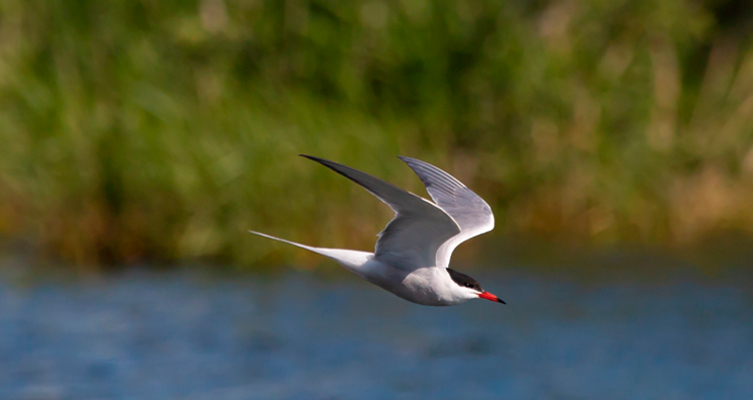
The Tata Steel site in IJmuiden (Netherlands) is situated between two Nature 2000 protected areas, north and south of the site along the North Sea. The biotopes at the site include wet dune valleys and herb-rich grasslands. During migration period, the borders of the site are visited by hundreds of Redwings, Fieldfares, Greenfinch and Common Chaffinch. The wet dune valleys are often visited by the Common Snipe and sometimes even the Jack Snipe. Other species regular visiting the site are Goldfinch, Bluethroat and Northern Wheatear. At the center of the site, at the top of the blast furnace gas holder, the company has put nest boxes for the Peregrine Falcon. In 2004-21, there were in total 17 breeding attempts made by the bird and at least 38 young Peregrine Falcons have flown out as a result. In the northern part of the site, a nesting hole was created for the Common Kingfisher to replace an offsite nesting hole which was often disturbed by public. The company has put a fence to protect the birds and has put a camera to follow a possible breeding attempt. So far, the birds are visiting regularly but have not yet started breeding. Other birds that breed at the site are European Stonechat, Black Redstart, Common Whitethroat, Meadow Pipit and even the Common Nightingale.
Tata Consultancy Services
Urban avifauna is under threat due to the negative impact of rapid urbanisation. TCS has taken the mandate to develop sustainable urban ecosystems that support species-rich bird communities in 16 of its campuses located across India.
“Urban environments should not be viewed as lost habitat for birds, but rather as a new habitat,” says Dr Laxmikant P Naik, biodiversity expert, TCS.
Basis an in-depth biodiversity mapping of its campuses, the company has developed a Bird Habitat Enhancement Programme (BHEP). Landscaping being an important part of BHEP, the company has carried out protection and transplantation of trees during the construction phase of its campuses, and plantation of native ornamental, flowering, fruit and shade trees at its campuses. There are 33,431 well grown trees across the 16 TCS campuses, which serve as roosting, nesting and feeding habitats for birds. As part of its green building design, the company has also built aquatic habitats for birds in the form of rainwater harvesting lakes, reflecting pools and water ponds with fountains. More than 1,500 nest boxes have been installed on trees along with water baths and feeders to increase the population of the hole-nesting birds within the campuses.
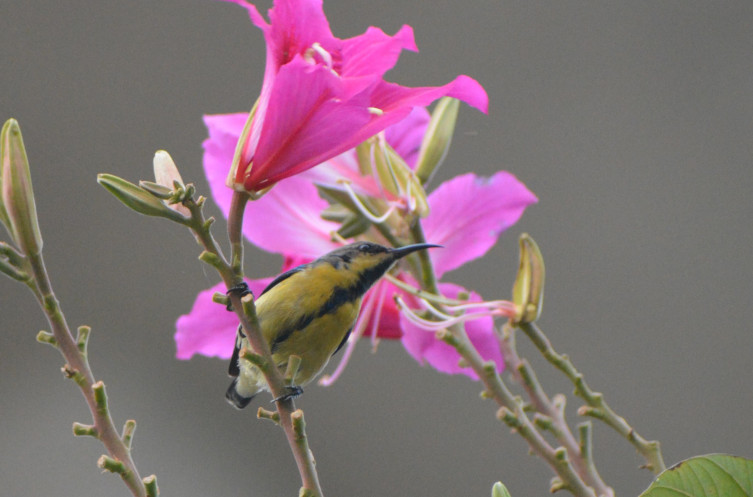
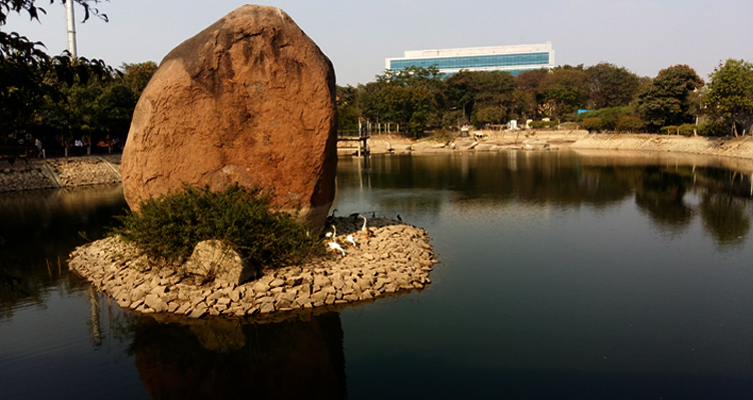
From 43 in 2016-17 to 75 in 2020-21, TCS campuses have recorded a year-on-year increase in arboreal, aquatic and terrestrial bird species. The nest boxes, grain feeders and water baths installed have recorded 100 per cent occupancy and utilisation. In addition to the Sparrow population increasing significantly across the campuses, birds featuring in the IUCN Red List of Threatened Species like Saras Crane, Black-headed Ibis and Darter (Snakebird) and the Indian national bird, the Peacock were also spotted at the TCS campuses.
Tata Motors
Situated in the Pimpri-Chinchwad industrial belt of Maharashtra, the land on which the second Tata Motors facility was to be constructed was barren. The company, back in 1964, thought of building a biodiversity rich wetland site alongside the plant to positively impact the natural capital in the area.
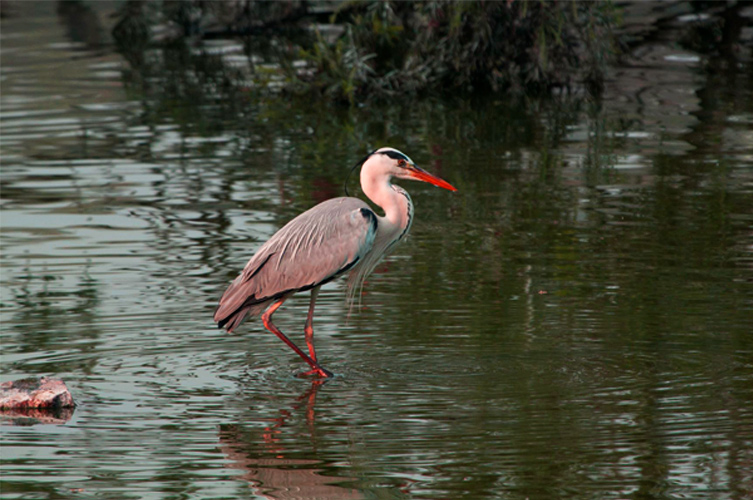
Today, this wetland ecosystem comprises of four ponds, two lakes and 245 acres of tree plantation. It receives seasonal monsoon flows from the surrounding catchment area, and two overflow weirs maintaining the water levels of the lakes. The marshland vegetation along the bank of the wetland provides a stable ecological habitat for waders like storks, cranes, herons, egrets, and moor hens. The wetland received the Bombay Natural History Society’s Green Governance Award in 2006.
Tata Coffee
Residents of the Asian tropical forests, the Hornbills are important for seed dispersal and hence, forest conservation. Dependent on a diverse array of fruiting trees for food and large trees for nesting, these ‘farmers of the forest’ are under threat due to fragmented and degraded state of their existing habitat. The Tata Coffee plantations located in the Anamalai hills of Coimbatore, Tamil Nadu, are home to two species of the hornbills — the endangered Great Hornbill and the endemic Malabar Grey Hornbill. The company has committed itself to conserve and protect these birds. It has set up the Tata Coffee Hornbill Foundation (TCHF) and has entered a partnership with the Nature Conservation Foundation (NCF) for the purpose.
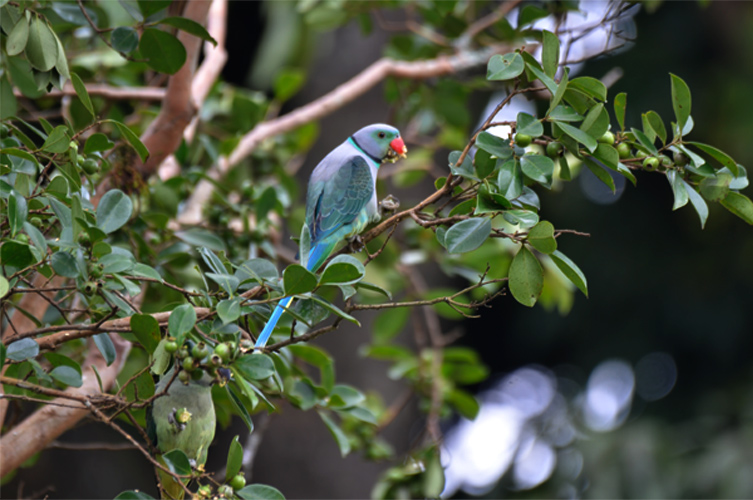
Nature Conservation Foundation (NCF) carried out a study in the Anamalai hills to assess the impact of habitat modification on the breeding biology and nesting behaviour of the Great Hornbill. Since the hornbill nest and roost in large trees with cavities, Tata Coffee is preserving and protecting large native trees like Ficus and Canarium strictum (food plants), and non-native trees such as Maesopsis eminii and Eucalyptus (roosting and nesting trees) within its estates. The company is further increasing food plant diversity and density by planting native hornbill food plants as shade in the plantations instead of exotic trees. It has also restricted human activity in important roosting and breeding sites. These efforts have helped conserve the hornbill population at the Tata Coffee estates with two to three Great Hornbills per sq km and about 11 Malabar Grey Hornbills per sq km. An NCF study also revealed the presence of 118 species of avian diversity at the estates. Rare birds — the Sri Lanka Bay Owl, Sri Lanka Frogmouth, Malabar Blue-winged Parakeet and Peregrine Falcon — were also spotted.

“With nearly 3,049 native plants and 396 native animal species at our plantations, Tata Coffee has an important role of preserving this important ecological ecosystem of our planet,” says Chacko Thomas, MD and CEO, Tata Coffee.
—Arushi Agrawal
Photographs by Dr Dhaval Vargiya (Tata Chemicals Society for Rural Development), S Balasubramanian (Tata Coffee)
